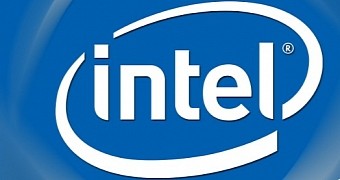Intel has been doing pretty well for itself, managing either a record-breaking financial performance or something close to it more or less every quarter. This doesn't mean it's totally comfortable with itself. Especially since more recent results haven't been as groundbreaking though.
However, it doesn't mean it's uncomfortable with itself either. Still, whatever the case may be, the company has been thinking of enacting a serious business change.
And it looks like the thinking period has finished, as Chipzilla has made the decision to change how it does things on the mobile and PC fronts.
The company is merging the Mobile CPU and PC divisions
On the one hand, Intel and others have been saying that there is no such thing as the Post-PC era. On the other hand, they have been all over 2-in-1 devices and smartphones, not to mention wearable gadgets.
This means that even if the PC industry isn't, officially, dying, everyone can see the writing on the wall.
Sure, desktop PCs aren't likely to disappear any time soon, and laptops will certainly be staying with us for a long time to come. However, it can't be denied that desktops have been selling less and less.
Because of this (though Intel didn't outright say it), Chipzilla has decided to merge its PC and Mobile Chip groups into a single entity called Client Computing.
Maybe we should have seen it coming back at IFA 2014, when Intel released the Core m CPU. It takes a big perspective shift to make the first chip in a next-generation product line be a mobile processor instead of a conventional model.
Core m chips are based on the 14nm Broadwell architecture, in case you need a reminder. It's used in 2-in-1 tablet/laptop hybrid devices.
The new Client Computing division will be led by current PC Client group chief Kirk Skaugen, while Herman Eul, the head of the mobile division, will help with the transition. Not clear what the man will be doing once the shift ends in 2015.
The implications
We don't know if the move will result in any job cuts. Intel hasn't announced any, but then again, it hasn't technically made a press release about the internal merger either. The info comes from Wall Street Journal.
There's one thing worth mentioning though: Intel has said that such reorganizations will happen more and more in the future. Maybe some mergers on the business front will happen? At least spin-offs sound like they are out of the question, but we won't discount that possibility.

 14 DAY TRIAL //
14 DAY TRIAL //